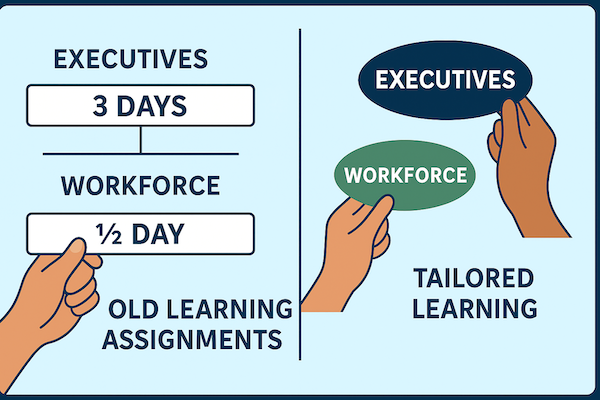Multiplying the value of business finance training

Published Date
In preliterate, prenumerate societies - according to dubious sources - people only count "One, two, many". It seems a little strange, given how much people everywhere use their fingers for keeping track of larger numbers and that most people have more than two fingers.

Once again, xkcd illustrates the thought.
The idea behind the comic may have roots in the grammatical structures of some languages. While English has two forms for nouns (singular and plural), some languages—often labeled as "primitive"—have three: singular, dual, and plural.
But let’s consider a hypothetical tribe that has no numbers beyond "one, two, many." What does "many" mean in this case? It’s not an absolute; it’s contextual. Five or ten lions? That’s definitely "many." Five or ten ants? Not so much.
Without the ability to count—or record numbers—estimates and plans remain vague. "We should go beyond the mountains. It will take us many days, and we should take food." How much food? That’s hard to say.
Now, imagine one person in the tribe learns to count. Suddenly, they can plan with precision—considering the number of people, the days required, and the amount of food needed. But they’re on their own, relying solely on their observations without broader support.
If a team learns to count, the dynamics change. They can discuss data, debate resources, refine plans, build consensus, and track more details than one person alone. But their impact is still limited to their immediate group.
If the entire tribe—spread across clans and villages—learns to count and record numbers, everything shifts. Information flows freely. Distant groups contribute insights. Large-scale operations become possible. Resources are allocated efficiently. Long-term projects emerge. And if the tribe competes for resources, it now has an advantage—one that could lead to expansion at the expense of its rivals.
Now, consider this in the corporate world.
Finance is the language of business. Every business plan must be expressed in numbers to assess costs, evaluate benefits, and compare alternatives.
- When one person becomes financially literate, they can analyze data and make better decisions. But without organizational buy-in, they may struggle to gain support.
- When a team improves financial literacy, they can challenge assumptions, refine strategies, and collectively monitor key metrics.
- When an entire company embraces financial understanding, information moves faster and more accurately. Decision-makers have real-time access to critical data. Managers can track performance with clarity. Employees recognize the impact of key metrics and know how to influence them. The company gains a competitive edge.
While we’re always happy to run a business acumen workshop for a company, we’re even happier when it’s part of a company-wide initiative. That’s when the impact goes beyond individual skills—it creates a shared language, improves teamwork, strengthens information flow, and fosters a culture of accountability and smart decision-making.
The more people we train, the greater the benefit for each individual—and the greater the return for the company as a whole.
Contact us to find out more about multiplying the power of business acumen.



